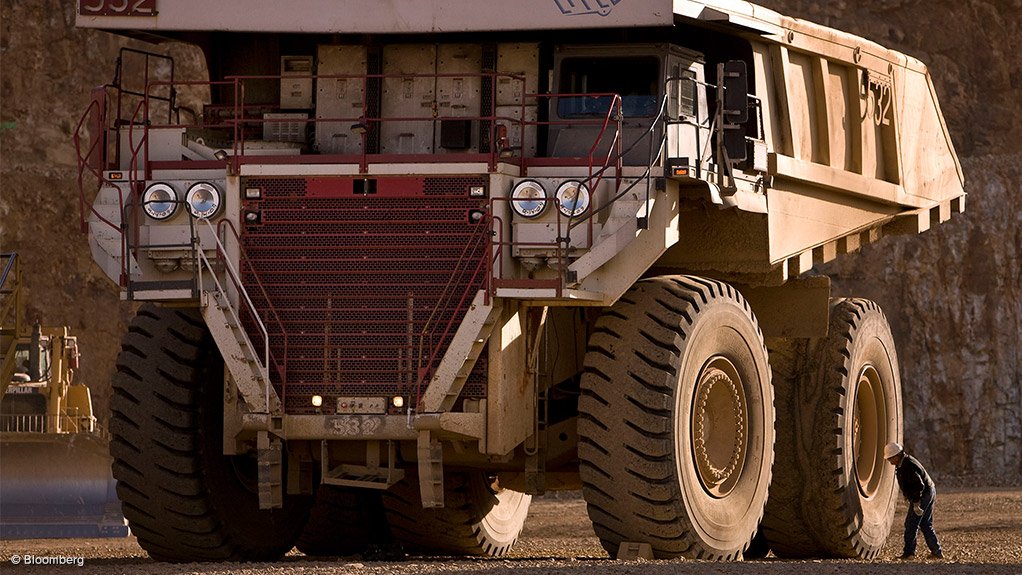
Photo by: Bloomberg
PERTH (miningweekly.com) – The listing of BHP Billiton spin-off South32 on the ASX, at a market capitalisation of $117-billion, pushed up advisory firm Deloitte’s Western Australian Index by 11.9% during May, to close the month at $146.6-billion.
Deloitte said on Wednesday that the iron-ore price, which peaked at $61.50/t during the month, further supported the growth of the index.
Deloitte clients and markets partner for Western Australia, Tim Richards, said the listing of South32 had reinforced Western Australia’s continued position as a global leader in the resources sector, and was one of the most significant changes in the Western Australian index in recent years.
“In addition, iron-ore’s continued recovery, closing the month at $59/t, provided stability which has generally been lacking over the last year.
“This increase was mostly due to temporary supply shortages at China’s steel mills, which led to decreases in stockpiles as demand outweighed availability of spot cargoes.”
Richards noted that other commodities had mixed results during the month under review, with the price of silver rising, whereas aluminium prices suffered the biggest loss in May amongst the commodities surveyed, with nickel and lead also plummeting.
Silver posted the strongest gain for the month, up 4.4% and closing at $1 673/oz, driven partly by expectations that demand will increase from the solar energy industry, which is expected to achieve significant growth in the next decade.
Uranium decreased by 8.5% to close at $35/lb, partly attributable to ongoing uncertainty over the future of some Japanese nuclear facilities, and news of Tokyo Electric Power Co’s decision to reduce stockholdings.
Aluminium prices experienced the biggest decrease, declining 12.0%.
Richards said that concerns were mounting that the aluminium market was heading towards its worst period in recent years, with the threat of rising global supplies imminent, and no indication of production slowing down.
With the exception of the Deloitte Western Australian Index, equity markets surveyed showed mixed results, with the All Ordinaries remaining largely unchanged in May amid investor caution as the Reserve Bank of Australia said business investment remained weaker than expected in mining and non-mining sectors, and economic growth forecasts were lowered as Australian businesses hold back major investment until China’s economy stabilises.
The FTSE 100 increased by 0.3% during the month, with positive market sentiment following the Conservative party securing a majority government in the general election, offset by statements by the Greek government that Athens would struggle to repay upcoming debt repayments to the International Monetary Fund raising the spectre of default.
The Nikkei continued its steady growth, increasing by 5.3%. Market gains have been driven by the Bank of Japan’s monetary stimulus of 80-trillion yen, and a weaker Japanese yen which has helped the profitability of exporters.
The US S&P 500 experienced a moderate gain of 1.0% on a lower unemployment rate, indicating the economy may be recovering after an uncertain start to the year.